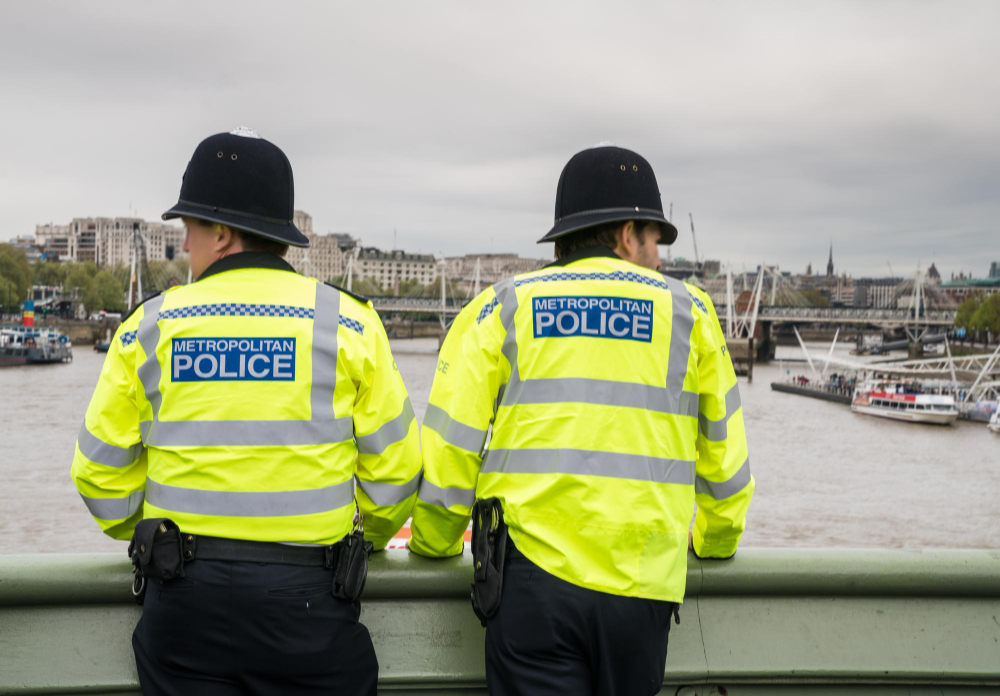Data Reveals UK Police Informed Immigration Authorities About Domestic Abuse Victims

|
Getting your Trinity Audio player ready...
|
Over 40 law enforcement entities in the UK have been directing victims seeking aid toward the Home Office, as per an independent watchdog’s findings.
Victims of domestic abuse who reach out to the police are being passed on to immigration officials, a recent release by a watchdog authority indicates.
In the past three years, the 43 police units in England, Wales, and the British Transport Police have notified immigration authorities about individuals who have experienced domestic violence, which has sparked immediate calls for a systemic overhaul.
Nicole Jacobs, the domestic violence commissioner, noted that abusers often wield the threat of immigration reporting as a means to manipulate their victims.
One woman, who was a victim of the convicted Metropolitan police officer David Carrick, stated that he had used the threat of deportation against her.
Jacobs emphasized that this reporting deters victims from coming forward, thereby allowing offenders to slip through the net of justice.
Jacobs commented: “At the critical juncture where victims seek the police for refuge from abuse, they are confronted with their greatest dread: involvement with immigration authorities. Migrant victims have confided that this plays right into the hands of their abusers’ coercive strategies.
The findings underscore that there isn’t a single police department where migrant victims receive priority treatment as victims. This situation demands immediate change. By setting up a firewall, we can make certain that the victims and prisoners bill provides justice and protection for all victims, not just a select few.”
Jacobs has petitioned the Home Secretary, Suella Braverman, to establish a barrier that would prevent the police and other agencies from alerting immigration services about complainants.
From April 2020 to March 2023, police referred 537 domestic abuse victim cases to the Home Office for immigration checks, based on the statistics sourced by the commissioner.
The commissioner’s report also documents an instance where police officers contacted immigration services in the presence of a complainant when she reported her ex-partner.
Clare Wood was tragically killed by George Appleton, her former boyfriend, in 2009 in Salford, Greater Manchester. Following this event, the report documents another case where “Lucia” sought police help after enduring three years of abuse. She felt betrayed by the police response and was fearful of deportation following her report. As her abuser continued his threats and harassment, she chose to sever ties with domestic abuse support services after receiving a letter from immigration enforcement.
Throughout the three years up to March 2023, the commissioner observed that despite these referrals, there were no instances of immigration enforcement actions such as detentions or deportations. Jacobs stated: “The absence of immigration enforcement actions against victims demonstrates that this practice benefits no one, and yet it infuses a profound sense of fear, which bears a significant toll on the safety of both the victims and the broader public.”
According to the NPCC’s guidance, police may share basic information with immigration enforcement under suspicion that a victim or witness may be residing illegally in the UK. However, the NPCC clarified that the routine investigation of a victim’s immigration status is not standard procedure.
Jacobs hopes for an amendment to the victims and prisoners bill in the upcoming parliamentary session.
Imkaan, an organization supporting ethnic minority women facing violence, found that 90% of women with insecure immigration status who suffered domestic abuse were discouraged from contacting police by their abusers leveraging the threat of deportation.
For those in need, the national domestic abuse helpline in the UK is 0808 2000 247, and Women’s Aid can also be visited for support. In the US, the domestic violence hotline is 1-800-799-SAFE (7233), and in Australia, the national family violence counselling service can be reached at 1800 737 732.






